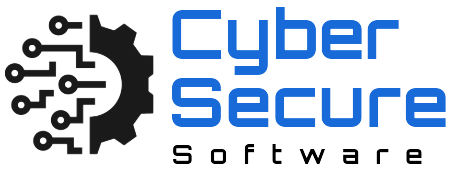Key Questions to Ask When Selling New Cyber Secure Software Systems for Cloud-Based Businesses
In today’s fast-paced digital world, cybersecurity is more critical than ever. As organizations transition to cloud-based systems, the risk of cyberattacks continues to grow. When presenting a new cybersecurity software solution, it is essential to ask insightful questions that will help you understand the unique needs of your potential client. At Cyber Security, we know how important it is to address these needs and are here to guide you through the key questions you should ask to ensure your solution is the perfect fit.
- 1. What Are Your Current Cybersecurity Concerns?
- Understanding your client’s current cybersecurity challenges is the first step. Are they facing regular data breaches, vulnerabilities in their system, or struggling with compliance? Identifying these issues will allow you to tailor your solution and show how your software can address these specific concerns.
- 2. What Compliance Regulations Do You Need to Follow?
- Each industry has its own set of compliance standards, such as GDPR, HIPAA, or PCI-DSS. It’s crucial to understand which regulations your prospect must comply with. Your solution should not only meet these requirements but also be flexible enough to adapt to any evolving compliance standards. Show how your software ensures compliance effortlessly.
- 3. What Types of Sensitive Data Are You Managing?
- The type of data an organization handles will guide the security approach. Whether it’s confidential customer data, financial records, or proprietary business information, knowing what data your client needs to protect will help you highlight the security features most relevant to them.
- 4. How Many Users Will Access the System?
- The scale of the solution plays a key role in determining its suitability. A small business will have different needs compared to a large enterprise with thousands of users. Discussing user numbers helps identify scalability, licensing, and potential costs, as well as demonstrating how your software can grow with their needs.
- 5. What Security Measures Do You Already Have in Place?
- It’s essential to understand the client’s current security infrastructure. Are they using firewalls, anti-virus software, encryption methods, or other security protocols? Knowing this helps you assess where your software can complement their existing security measures or provide necessary upgrades.
- 6. What Are Your Integration Requirements?
- Businesses often use a variety of software systems. It’s important to understand how your solution can integrate with their existing tech stack. Ask about their integration needs and any challenges they’ve encountered with previous systems. Position your software as an easy-to-integrate solution that minimizes disruption and maximizes efficiency.
- 7. What Backup and Recovery Systems Do You Have in Place?<
- Data loss can have severe consequences. Understanding their backup and recovery strategies will help you demonstrate how your software can enhance their ability to recover from disasters. Explain how your system can bolster data protection and improve their recovery capabilities.
- 8. What Is Your Budget for Cybersecurity Solutions?
- Budget constraints are a common factor. Ask your client about their cybersecurity budget and any financial restrictions they have. This allows you to propose a solution that fits within their budget while still meeting their security objectives. Be ready to discuss flexible pricing models and the ROI your solution can deliver.
- 9. What Are Your Expectations Regarding Support and Training?
- Effective customer support and training are critical for successful implementation. Inquire about your client’s expectations for training their team and the level of support they need. Highlight the training, ongoing support, and resources your company provides to ensure a smooth transition and continued success.
- 10. What Are Your Long-Term Cybersecurity Goals?
- Understanding their long-term cybersecurity vision helps position your software as a strategic investment. Whether they are planning to scale, embrace new technologies, or explore new markets, demonstrate how your solution can grow alongside their business and adapt to future challenges.
Conclusion
Asking the right questions is essential for delivering a customized cybersecurity solution that meets your prospect’s needs. By understanding their current challenges, compliance requirements, data protection priorities, and future goals, you can effectively demonstrate how your cybersecurity software will enhance their security posture and support their business growth. At Security Software, we are committed to helping you navigate these critical questions and deliver the ideal cybersecurity solution.
If you have any further questions or need assistance, don’t hesitate to reach out. Our team is here to support you every step of the way.
